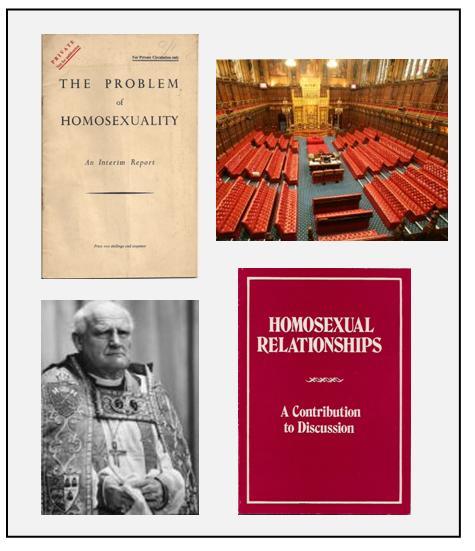Laura Ramsay
University of Nottingham
“An Uneasy Consensus:
The Church of England’s engagement
with questions of homosexuality
during the 1950s and 1960s”
04th February 2014
1 p.m. – 2 p.m.
Simon Building Room 2.57
An Uneasy Consensus: The Church of England’s engagement with questions of homosexuality during the 1950s and 1960s
Recently, an emerging body of literature has sought to address the previously neglected question of the place of religious influences on the history of sexuality. In particular, historians have focused on the Church of England’s contribution to debates about homosexual law reform in the 1950s and 1960s, suggesting that, by 1957, a sort of sexual liberalism was gradually overtaking mainstream religious discourse. But, at a time when the Church has expressed itself so wholeheartedly opposed to same-sex marriage, it is important to demonstrate that this history of liberal attitudes is part of a much broader and extremely complex history of the Church’s engagement with questions of homosexuality. This paper suggests that the Church was far more divided on this issue than previous accounts have indicated. When the bishops and archbishops supported law reform in the House of Lords, they did so within strict limits, based on an uneasy consensus of tightly balanced views.
Previous historical accounts have seemed to suggest that this debate was a simple process of liberal versus conservative, one side winning the argument and taking the subsequent plaudits. In contrast, this paper suggests that this was not how the Church approached its decision-making in relation to sexual issues, rather it viewed its task as one of accommodation; the Church had a responsibility to reconcile opposing viewpoints and to find some sort of compromise. Such a process led to a considerable degree of tension and ambiguity, and historians’ recent focus on law reform has perhaps obscured the complicated and ongoing debate after 1967. The uneasy consensus that had been constructed in the 1950s and 1960s later became problematic, as the Church struggled to find ways of reconciling itself with new ways of thinking about the issue of homosexuality in the post-law reform era.
For more information, contact stuart.butler@postgrad.manchester.ac.uk
